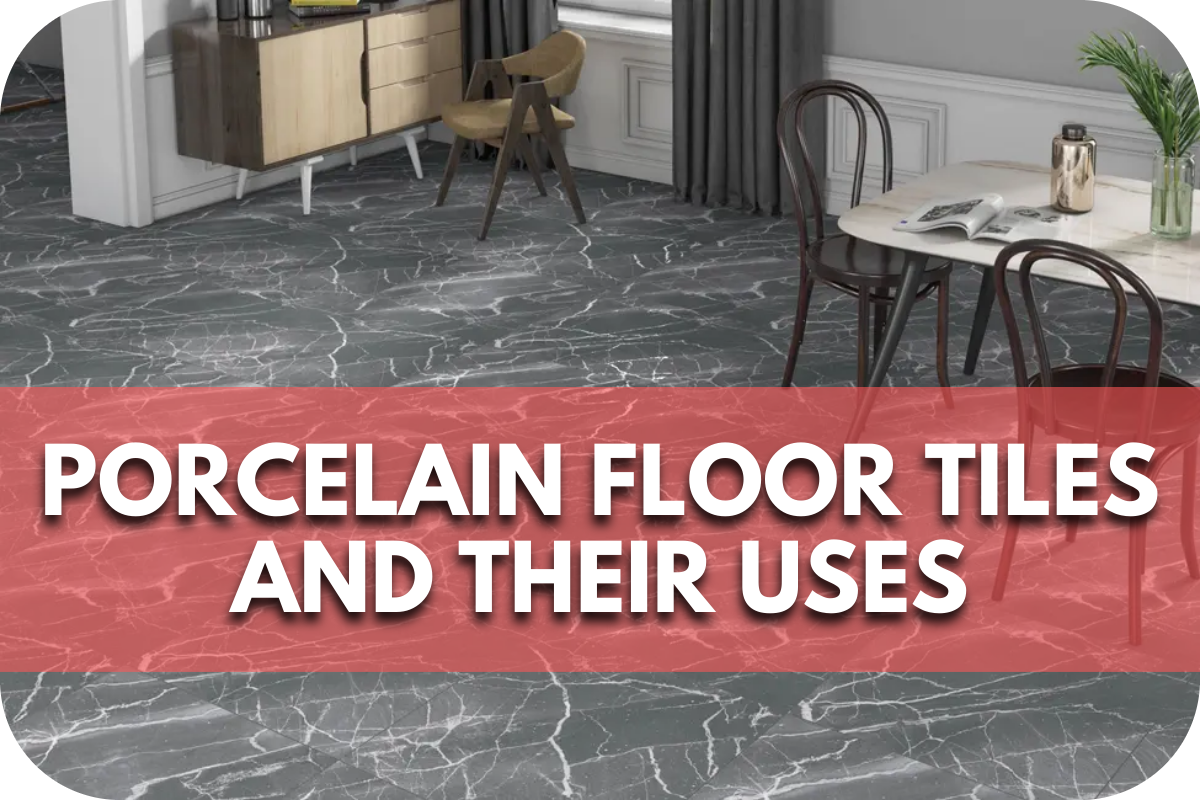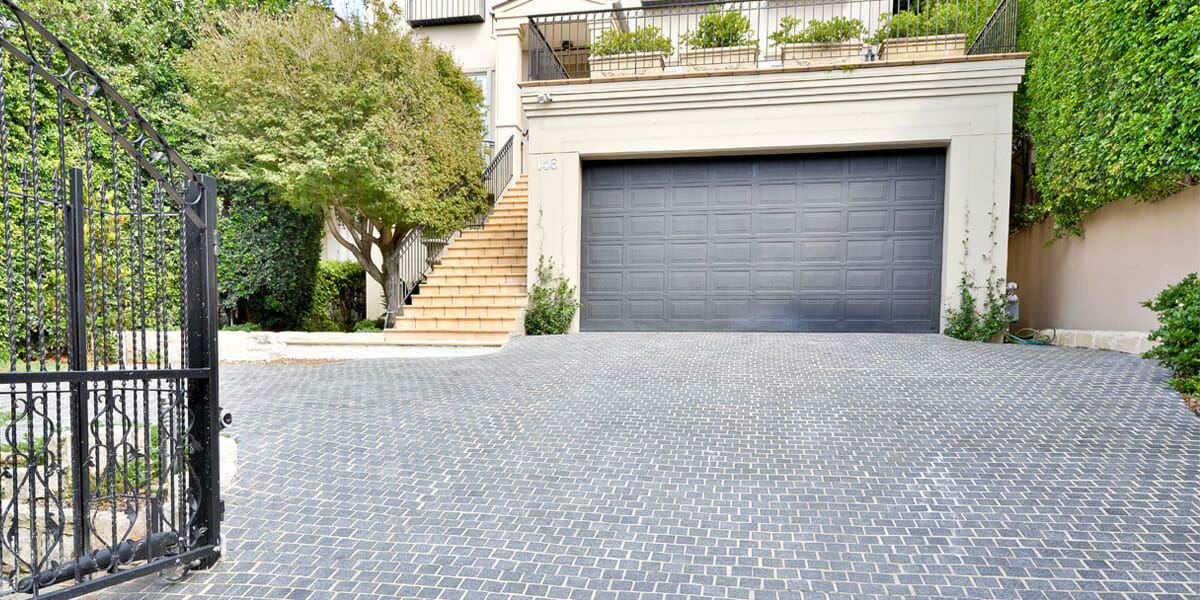
Struggling to find a flooring option that combines durability, style, and low maintenance?
Many flooring materials fail to meet these criteria, leading to frequent repairs, unsightly wear, and high upkeep costs.
Discover porcelain floor tiles – the perfect blend of strength, elegance, and ease of maintenance. Our comprehensive guide explores their numerous uses and benefits, helping you make an informed choice for your space.
What are Porcelain Floor Tiles?
Porcelain floor tiles are a premium flooring option crafted from dense clay that undergoes high-temperature firing, resulting in exceptional durability and versatility.
Their distinguishing feature is their minimal water absorption rate, making them highly resistant to moisture, stains, and scratches. This attribute renders them ideal for areas prone to spills and heavy foot traffic, such as kitchens and bathrooms.
Composed of fine porcelain clay mixed with minerals, these tiles boast remarkable strength and longevity, capable of withstanding the rigours of daily use without succumbing to cracks or chips.
Additionally, their wide range of finishes, colours, and patterns offers endless design possibilities, catering to diverse aesthetic preferences. Porcelain tiles are environmentally friendly due to their natural composition and require minimal maintenance, enhancing their appeal.
In essence, porcelain floor tiles epitomise the perfect blend of functionality and elegance, elevating the ambience of any space they adorn.
Benefits of Porcelain Floor Tiles
Porcelain floor tiles offer many benefits, making them a preferred choice for homeowners, designers, and builders alike. Let’s delve deeper into some of the key advantages of choosing porcelain tiles for your flooring needs:
1. Durability
Porcelain tiles are incredibly durable and resistant to wear and tear. Their dense composition and high firing temperatures make them less prone to cracking, chipping, and scratching than other flooring materials.
This durability ensures that porcelain tiles maintain their appearance and structural integrity even in high-traffic areas and commercial settings.
2. Moisture Resistance
One of the standout features of porcelain tiles is their low water absorption rate, which makes them highly moisture-resistant. This makes them ideal for areas prone to spills, such as kitchens, bathrooms, and laundry rooms.
Their moisture resistance also makes them suitable for outdoor applications, such as patios and pool surrounds.
3. Stain Resistance
Thanks to their non-porous surface, P porcelain tiles are inherently resistant to stains. This means spills and messes can be easily wiped away without leaving unsightly marks or discolouration.
This makes porcelain tiles a practical choice for households with children and pets and for commercial spaces where cleanliness is paramount.
4. Easy Maintenance
Unlike other flooring types, porcelain tiles require minimal maintenance to keep them looking their best. Regular sweeping and mopping are needed to remove dirt and debris, while occasional deep cleaning can help maintain their shine and lustre.
This low maintenance requirement particularly appeals to busy homeowners and commercial property owners.
5. Versatility
Porcelain tiles come in various colours, patterns, sizes, and finishes, allowing endless design possibilities. Whether you prefer a classic, timeless look or a more contemporary aesthetic, there is a porcelain tile to suit every style and preference.
From sleek, polished tiles to rustic, textured tiles, porcelain’s versatility allows you to create the perfect look for your space.
6. Longevity
Porcelain tiles are known for their longevity and durability, making them a wise investment for any home or business. Unlike other flooring types that may need to be replaced every few years, porcelain tiles can last for decades with proper care and maintenance.
This durability saves you money in the long run and reduces the environmental impact of constantly replacing flooring materials.
Popular Uses of Porcelain Floor Tiles
Porcelain floor tiles are incredibly versatile and can be used in various residential and commercial applications. Let’s explore some of the most popular uses of porcelain tiles:
1. Kitchen Floors
The kitchen is often considered the heart of the home, and porcelain tiles are an excellent choice for kitchen flooring. Their durability and resistance to moisture and stains make them ideal for withstanding the rigours of daily cooking and meal preparation. Their wide range of styles and finishes allows you to create a functional and stylish kitchen.
2. Bathroom Floors
Porcelain tiles are a natural choice for bathroom floors due to their moisture resistance and easy maintenance. Whether you prefer a sleek, modern look or a more traditional aesthetic, there are porcelain tiles to suit every bathroom design scheme. Plus, their slip-resistant surface provides added safety in wet areas.
3. Living Room and Bedroom Floors
Porcelain tiles are increasingly used in living rooms and bedrooms to create a seamless flow between spaces. Their durability and versatility suit high-traffic areas such as living rooms. At the same time, their wide range of styles allows you to create a cosy and inviting atmosphere in bedrooms.
4. Commercial Spaces
Porcelain tiles are popular for commercial spaces such as retail stores, offices, restaurants, and hotels. Their durability, stain resistance, and low maintenance requirements make them ideal for withstanding the heavy foot traffic and wear and tear that commercial spaces often experience. Plus, their sleek and professional appearance adds a touch of elegance to any commercial environment.
5. Outdoor Areas
Porcelain tiles are not just limited to indoor use – they are also suitable for outdoor applications such as patios, terraces, and pool surrounds. Their moisture and frost resistance make them perfect for withstanding the elements, while their slip-resistant surface provides added safety in outdoor areas.
6. Feature Walls and Backsplashes
In addition to flooring, porcelain tiles can create stunning feature walls and backsplashes in kitchens, bathrooms, and other home areas. Their wide range of colours, patterns, and finishes lets you get creative and add visual interest to any space.
Design and Style Options
Regarding design versatility, porcelain floor tiles offer an extensive range of options to suit every aesthetic preference and practical need. From sleek contemporary designs to timeless classics, porcelain tiles can mimic various materials such as marble, wood, concrete, and even fabric textures.
Large-format porcelain tiles for modern interiors create a seamless, spacious look with fewer grout lines, ideal for minimalist and industrial styles. On the other hand, traditional designs benefit from porcelain tiles that replicate natural wood’s warmth or marble’s elegance, providing durability without compromising on aesthetic appeal.
Colour options are equally diverse, ranging from neutral shades that enhance light and space to bold, statement colours that add character to any room. Textures vary from polished finishes that reflect light for a luxurious feel to matte finishes that offer more understated elegance and better grip in wet areas.
Whether designing a contemporary kitchen, a rustic bathroom, or a sleek office space, porcelain floor tiles offer endless possibilities to elevate your interior design while ensuring practicality and durability.
Installation Considerations
Installing porcelain floor tiles requires meticulous planning and attention to detail to ensure a flawless finish.
The first step is subfloor preparation. A clean, level and stable subfloor is essential for preventing tile movement and providing long-lasting durability. Any cracks or uneven areas should be repaired before installation begins.
Tile layout is another critical consideration. Plan the layout carefully to achieve a balanced and symmetrical appearance. This often involves dry-laying the tiles to determine the best arrangement and minimise the need for cutting tiles.
Choosing the right adhesive is crucial for a secure installation. For interior installations, use a high-quality, polymer-modified thin-set mortar. An epoxy-based adhesive may be necessary for exterior applications or areas with high moisture.
Grouting is the next important step. Select a grout colour that complements your tiles and enhances the overall aesthetic. Ensure the grout is applied evenly and appropriately sealed to prevent staining and water infiltration.
Cutting and trimming tiles to fit around obstacles such as doorways and fixtures requires precision. Using a wet saw or tile cutter will ensure clean, accurate cuts.
While DIY installation can be an option for experienced individuals, hiring a professional installer is often recommended for larger or more complex projects. Professionals have the tools and expertise to ensure a high-quality finish and can handle any unexpected issues that arise.
Maintenance Tips
Proper maintenance is essential for preserving the beauty and longevity of porcelain floor tiles. Here are some tips to help you keep your tiles looking their best:
- Regular Cleaning: Establish a routine cleaning schedule to remove dirt, dust, and debris from the tiles’ surface. Sweep or vacuum the floors regularly to prevent the buildup of dirt and grime, especially in high-traffic areas.
- Mild Cleaning Solutions: When mopping your porcelain tiles, use a mild detergent or a pH-neutral cleaner diluted in water. Avoid harsh chemicals or abrasive cleaners, as these can damage the tiles’ surface over time.
- Avoid Standing Water: Porcelain tiles are highly resistant to moisture, but standing water should still be avoided to prevent slipping and potential damage to grout lines. Wipe up spills promptly and use mats or rugs in areas prone to moisture, such as entryways and kitchens.
- Grout Maintenance: Inspect the grout lines regularly for signs of wear, cracking, or discolouration. Repair any damaged grout promptly to prevent moisture from seeping beneath the tiles and causing further damage.
- Stain Prevention: While porcelain tiles resist stains, substances such as oil, grease, and acidic liquids can still cause discolouration if left untreated. To prevent staining, wipe up spills immediately and use coasters or trays under potted plants and beverages.
- Professional Cleaning: Periodically, consider hiring a professional tile and grout cleaning service to clean your porcelain tiles deep. Professional cleaners have the equipment and expertise to remove stubborn stains and restore the lustre of your tiles without causing damage.
- Sealant Application (if applicable): Some porcelain tiles may benefit from a penetrating sealant to enhance their stain resistance and protect them from moisture damage. Consult with your tile supplier or installer to determine whether sealing is recommended for your specific tiles.
Conclusion
Porcelain floor tiles offer unmatched durability, versatility, and style for any space. Whether for your home or commercial property, their benefits are undeniable. Ready to transform your floors? Contact Splendour In Stone Melbourne today to explore our extensive range and find the perfect tiles for your project.
More To Explore

Grey Granite Cobblestones for Driveways: Strength and Style
Grey granite cobblestones combine strength, safety, and timeless appeal, making them a popular choice for Melbourne driveways and outdoor spaces. Their natural flamed texture offers

Granite Wall Cladding Melbourne: Modern and Classic Appeal
Granite wall cladding brings both modern sophistication and classic charm to Melbourne architecture. Known for its durability and natural beauty, granite transforms façades, feature walls,


